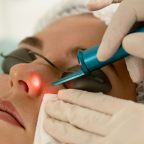
Preparing For a Women’s Health Exam
Women’s health exams are an essential part of every woman’s life once puberty hits. Timely women’s health tests and checkups add to maintaining your total body health. These tests and checkups accommodate the prevention of diseases that may cause trouble in the future, like breast cancer or cervical cancer.
Here are a few things to keep in mind before going in for your health appointment:
Avoid tests during your period
Getting yourself tested during your period may affect your results for specific exams like the pap smear test, and you may have to get it done again. If you’re going in to examine the heavy bleeding, it may be fine, but you should check in with your doctor beforehand.
Prepare a set of questions
Before going in for a health exam, create a list of questions you may want to ask the doctor and jot them down on your phone or a notebook. This way, you will not forget anything you wanted to ask.
Take a friend or family member along
It’s always great if someone accompanies you to the doctor’s surgery for your annual examinations, this may offer support and knowing someone’s out there waiting for you may help you ease anxiety.
Keep a list of all your medicines
Knowing all the medicines you take, and their exact dosage gives an idea about the health of a patient's whole body. If you’re facing any unwanted symptoms, the doctor may consider your medication chart to determine the ca.
Gather family history information
Family medical history Is essential when getting a complete body check. This shows a picture of your current health condition and any possibilities of diseases in the future. During some tests, family history is considered to determine if you’ve inherited the gene of certain diseases.
What to expect during women’s health exams?
Women’s health tests depend significantly on age, sexual history and medical history. These exams will review the patient's period and sexual history. The doctor will also review the patient's medication and any previous surgeries. Standard tests include pap smears, pelvic tests, breast examinations and STD tests. Breast examinations, bone density tests and cholesterol tests start after the age of forty in most cases.
Arriving 15 minutes before the allotted time is recommended; this will allow the completion of insurance paperwork beforehand. The doctors and nurses will guide you regarding all the processes you’re about to go through; This will give you enough time to understand everything and calmly get the tests done.
Conclusion:
Prevention of diseases is the primary goal of women’s health tests; staying on top of your health leads to a better quality of life; you shouldn’t wait for a critical condition or disorder to visit the doctor. You may have to gather all your previous family medical history and all information regarding the medicines you’ve taken, and this will allow your physician to analyse the condition of your whole body. You should also follow up with your doctor if any disorders are detected within your system.



















